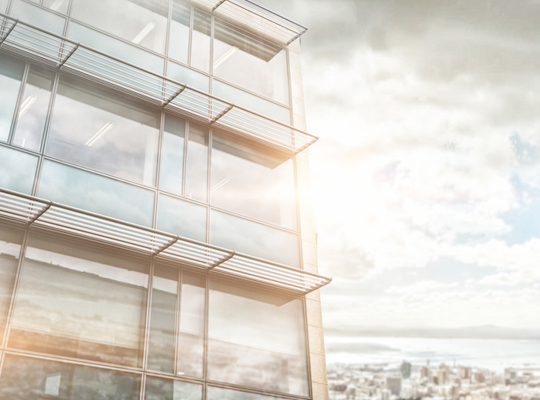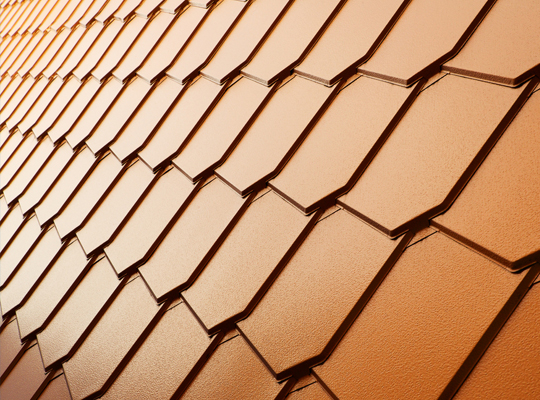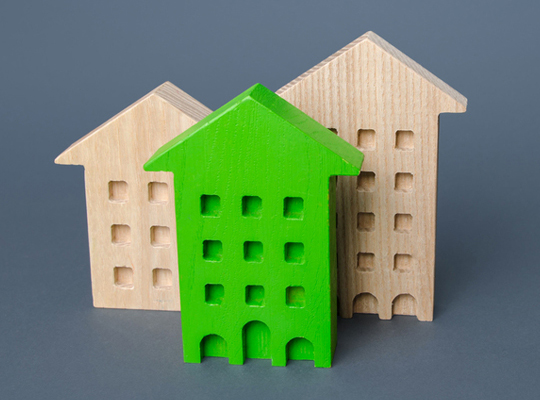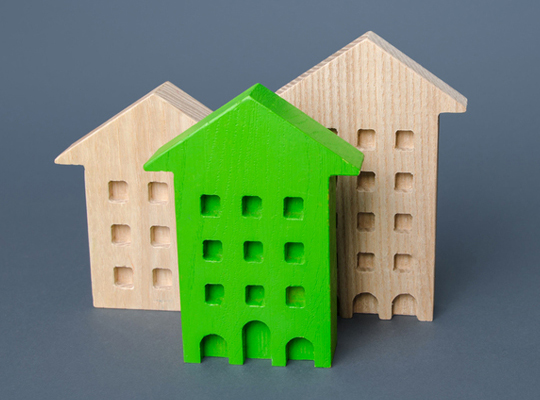Business Fields
Smart Window
- Advanced Solar Control
Windows designed to regulate incoming sunlight and solar heat.
- Two Market Approaches
The smart window industry is divided into two categories:those requiring external power supply and those that adapt autonomously.
- Our Differentiation
We specialize in the autonomous type, requiring no external power, using a cost-effective film manufacturing method rather than laser deposition.
- VO₂-Based Technology
VO₂ thin films are coated onto smart window glass or films.
Leveraging the phase-transition property at 68 °C, dopants such as tungsten allow for precise temperature control.
Smart Insulation Materials
- Building Exteriors & Specialty Tiles
Utilizing VO₂’s thermal regulation properties to create building exteriors and tiles with adjustable temperature performance.
- Specialty Pipes & Heat-Retaining Vessels
Development of VO₂-based pipes and containers (e.g., ceramic pots) that maintain stable temperatures in solid-state conditions.
- Automotive Coatings
VO₂ applied to automotive coatings and components, controlling heat emission and insulation across specific temperature ranges.
VO₂-Based Composite Filler for Road Heating
- We provide advanced VO₂-based composite filler solutions
for municipalities, infrastructure operators, and smart city developers
seeking safe winter roads while reducing energy costs and environmental impact.
Traditional snow-melting systems depend on continuous electric heating,
leading to excessive energy consumption and high maintenance expenses.
- Technology & Mechanism
Our proprietary filler, developed through an innovative one-step dry process,
uniquely integrates phase-change and metal–insulator transition (MIT) properties,
enabling both thermal storage and intelligent heat regulation.
When applied to road heating systems,
the filler absorbs and stores ambient heat,
automatically releasing it when temperatures drop below the transition threshold.
- Benefits & Value
This self-regulating function minimizes power demand
while ensuring stable and highly effective snow-melting performance.
Most importantly, it achieves more than 50% reduction in operational costs,
while enhancing public safety and significantly reducing the carbon footprint.
Through this innovation, our customers realize
both economic efficiency and long-term sustainability.
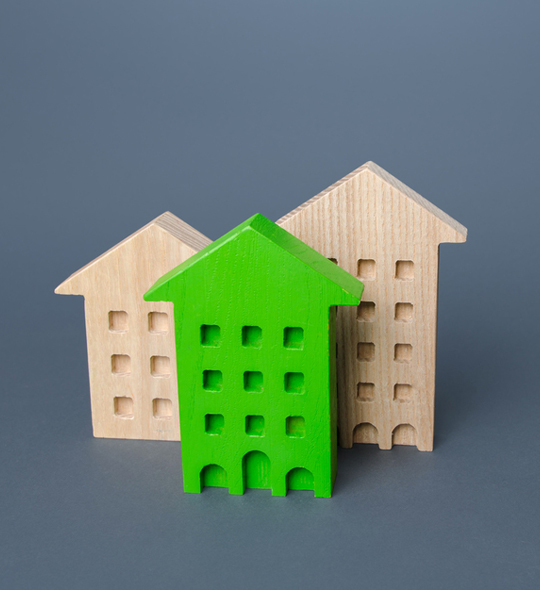
Zero-Energy Building (ZEB) Collaboration
- Integration with VO₂ Technologies
Collaborating in ZEB projects by applying VO₂-based smart windows and insulation materials.
- What is ZEB?
Buildings that minimize energy use and greenhouse gas emissions while producing renewable energy to achieve near-zero energy consumption.
- ZEB Certification
An official program that evaluates five key energy uses (cooling, heating, hot water, lighting, ventilation) to certify building energy efficiency and carbon reduction.
- Government Incentives
Certified ZEB buildings benefit from regulatory relaxations (e.g., floor area ratio and height by 11–15%), and enjoy tax reductions of up to 15% on acquisition.
- Mandatory Adoption
Since 2020, all public buildings over 1,000 ㎡ require ZEB certification, and since 2023, this mandate applies to all public and private buildings over 500 ㎡.
